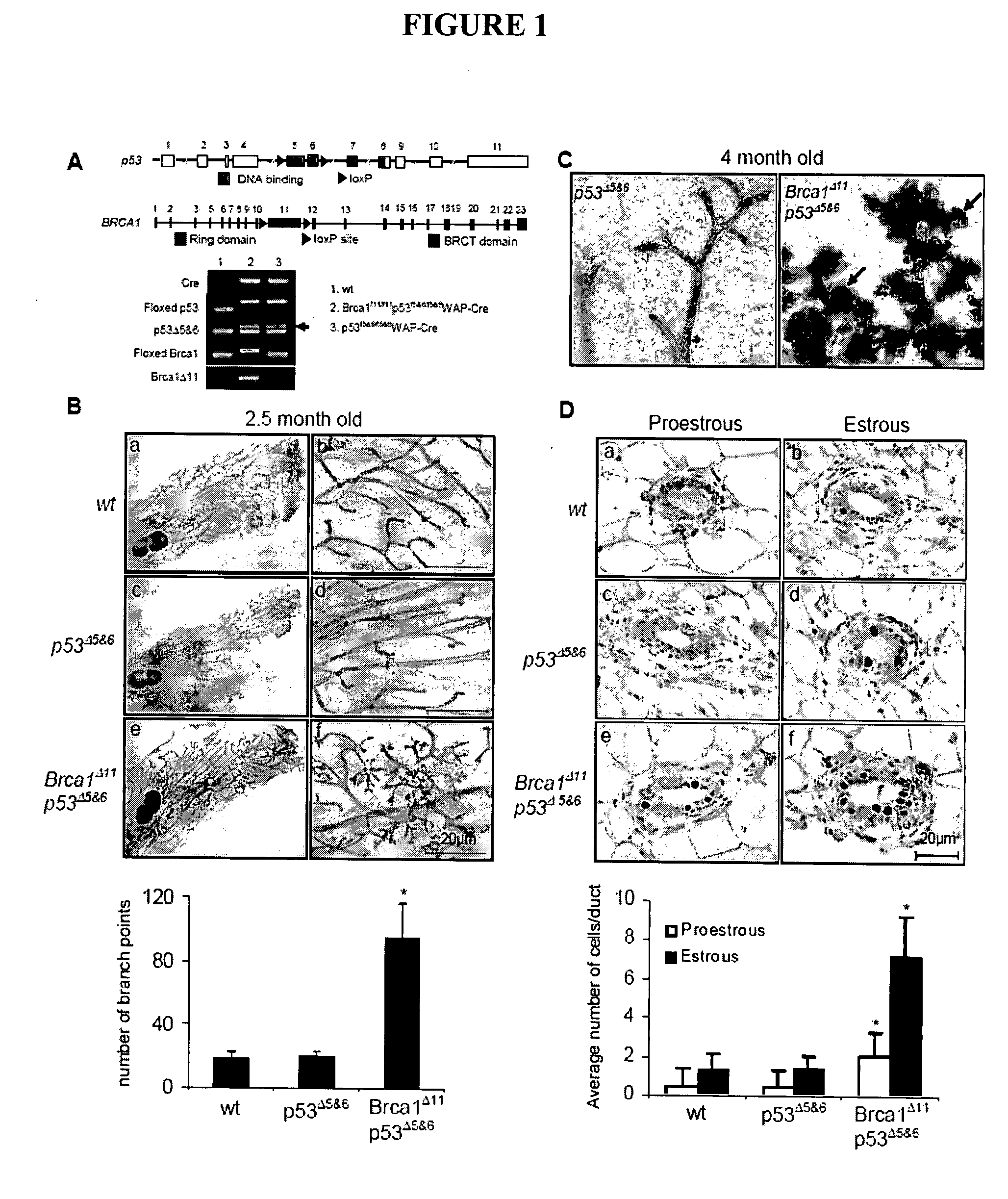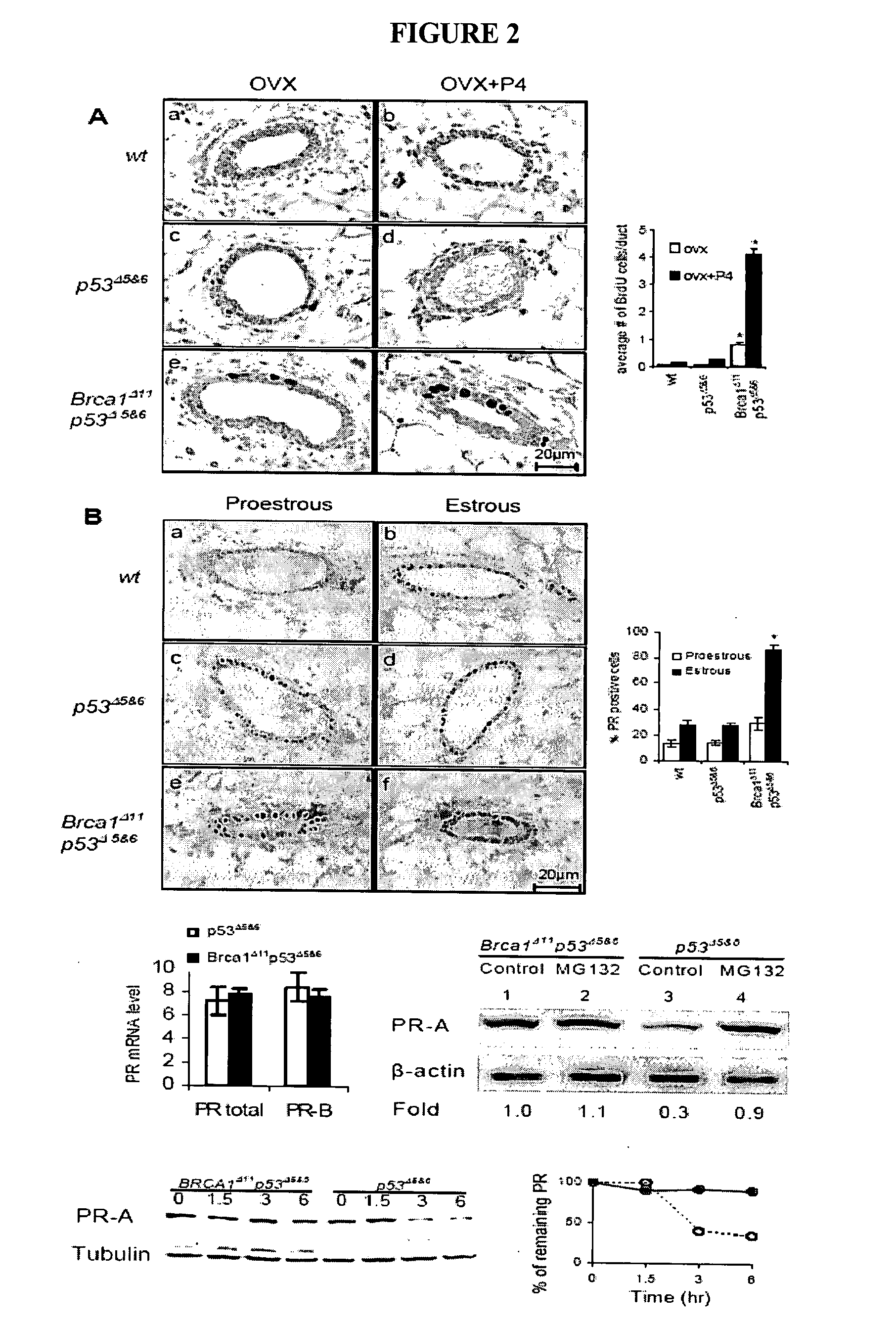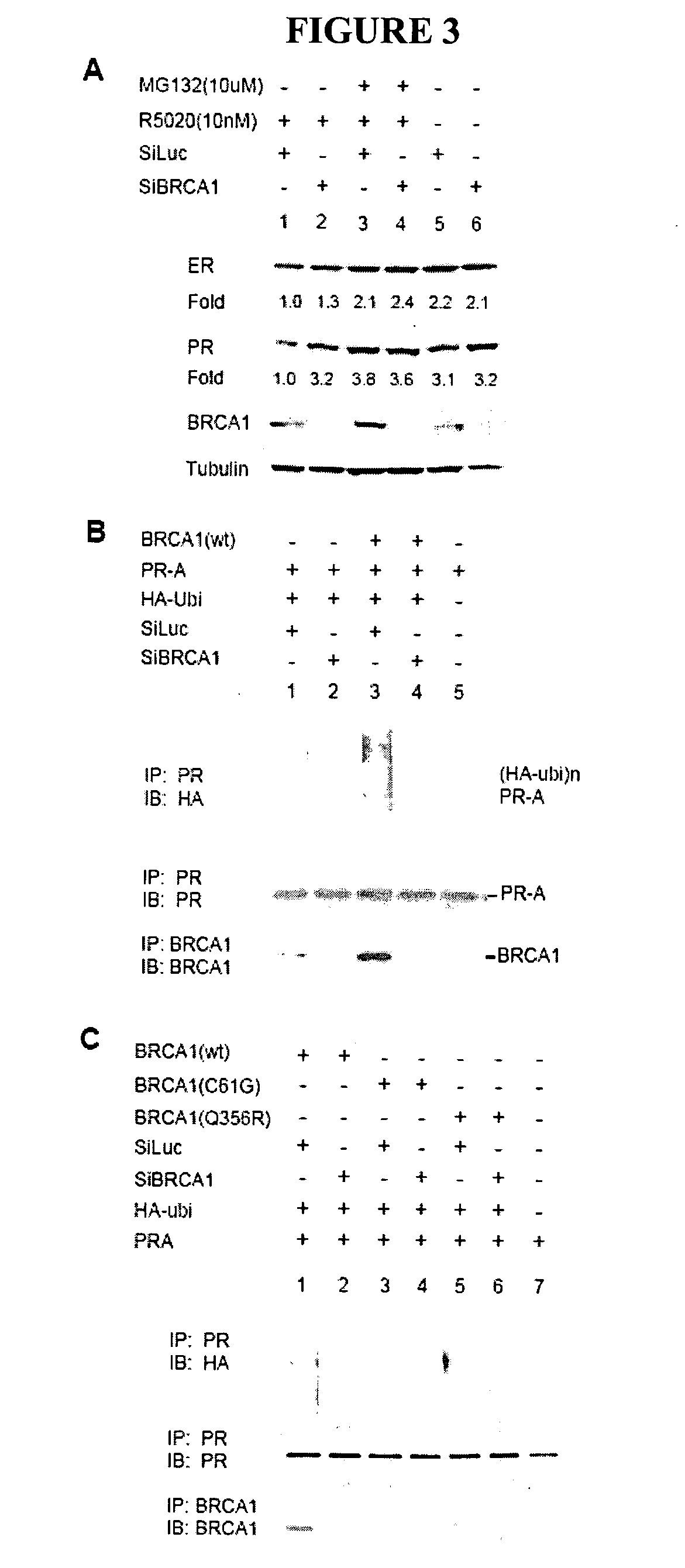Methods and compositions for cancer prevention and treatment
- Summary
- Abstract
- Description
- Claims
- Application Information
AI Technical Summary
Benefits of technology
Problems solved by technology
Method used
Image
Examples
example 1
Animals and Genotyping
[0090]The p53f5&6 / f5&6WAP-CREc mice were generated for somatic inactivation of p53 in mammary epithelial cells as described by Lin et al., 2004, Cancer Res. 64:3525. By breeding with mice harboring two exon 11 floxed BRCA1 alleles (obtained from NIH, NCI mouse repository), compound transgenic mice were generated. Mice were in a C57BL / 6 and 129 / Sv mixed background, or BALB / c and C57BL / 6 mixed background. The presence of floxed, deleted p53 and BRCA1 alleles, and Cre recombinase were determined using polymerase chain reaction (PCR) with toe DNA as template. Rosa26-LacZ reporter, R26R (Soriano, 1999, Nat, Genet. 21:70) was used to monitor Cre-active cells in the mammary gland. Mice were maintained in accordance with regulation of Institutional Animal Care and Use Committee of University of California, Irvine.
example 2
Estrous Stage Determination
[0091]Stages of estrous were determined by cytological evaluation of vaginal smears as described in Inderdeo et al., 1996, Biol. Reprod. 55:498. Vaginal smears of adult female nulliparous mice age 10-14 wk were taken once a day at noon. Mice were monitored for at least one estrous cycle and only mice undergoing normal estrous cycle were used for further experiments. After determining the estrous stage mice were injected intraperitoneally with 50 μg of 5-bromo-2-deoxyuridine (BrdU; Sigma, St. Louis, Mo.) per gram of body weight and sacrificed two hr later. Mammary glands were isolated and processed for immunohistological analysis as previously described in Lin et al., 2004, Cancer Res. 64:3525.
example 3
Histology and Immunohistochemistry
[0092]Mammary glands were collected, fixed in 4% paraformaldehyde and processed through paraffin embedding. Sections were cut 5 μm thick and subjected to immunohistochemical analysis. Immunostaining was performed as described in Vectastain Elite ABC kit (Vector Laboratories, Burlingame, Calif.). Antibodies used for immunostaining were: BrdU (mouse monoclonal biotinylated, ZBU30, Zymed, San Francisco, Calif., dilution 1:100), PR antibody (rabbit polyclonal, C-19, sc-538, Santa Cruz Biotechnology, Santa Cruz, Calif.; dilution 1:2000), ERα (MC-20, sc-542, Santa Cruz Biotechnology, Santa Cruz, Calif.; dilution 1:2000).
PUM
| Property | Measurement | Unit |
|---|---|---|
| Molar density | aaaaa | aaaaa |
| Molar density | aaaaa | aaaaa |
| Molar density | aaaaa | aaaaa |
Abstract
Description
Claims
Application Information
 Login to View More
Login to View More - R&D
- Intellectual Property
- Life Sciences
- Materials
- Tech Scout
- Unparalleled Data Quality
- Higher Quality Content
- 60% Fewer Hallucinations
Browse by: Latest US Patents, China's latest patents, Technical Efficacy Thesaurus, Application Domain, Technology Topic, Popular Technical Reports.
© 2025 PatSnap. All rights reserved.Legal|Privacy policy|Modern Slavery Act Transparency Statement|Sitemap|About US| Contact US: help@patsnap.com



